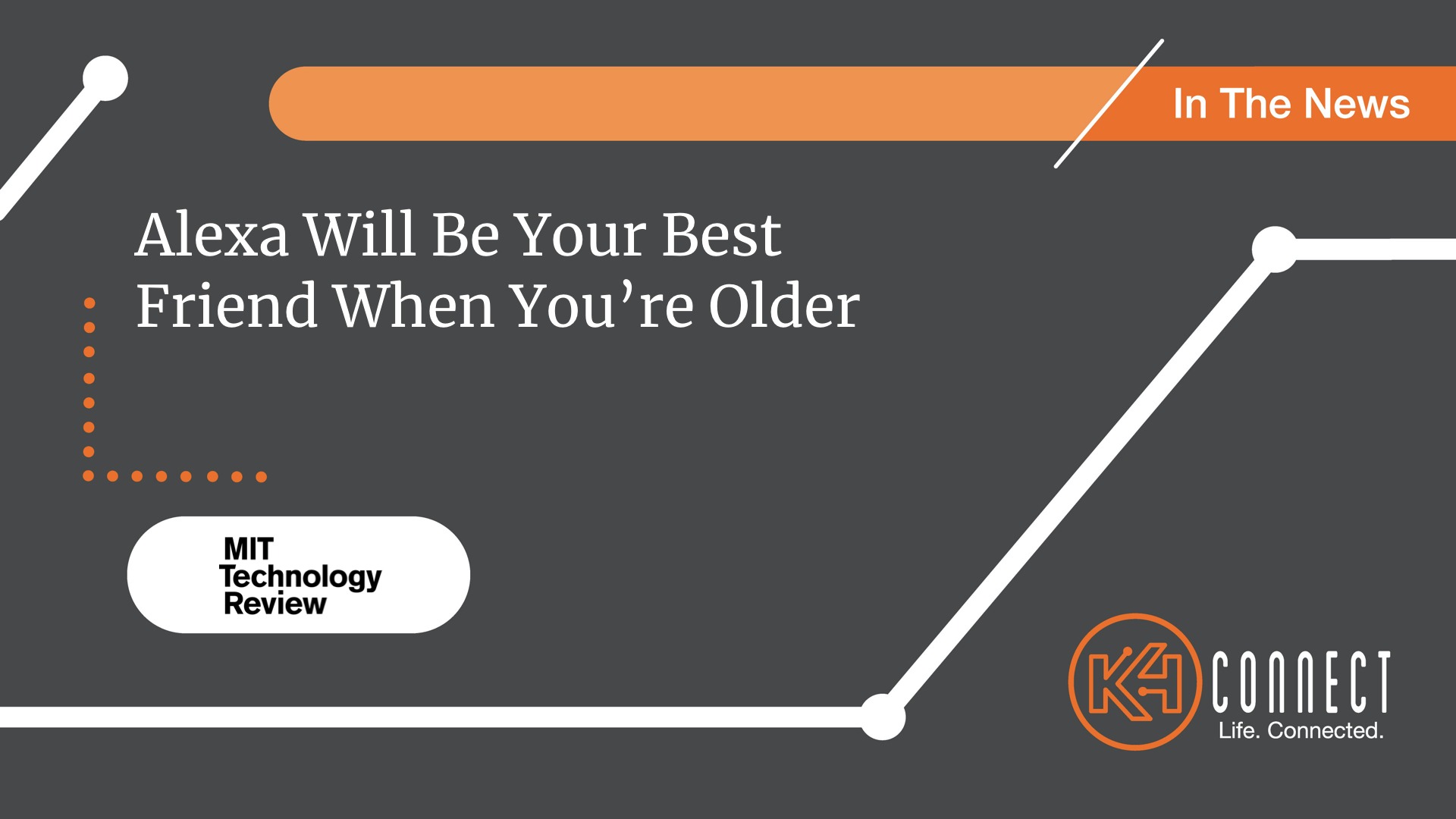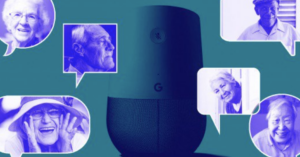Voice tech devices tick a number of boxes that appeal to a wide variety of age groups: they’re easy to use and are physically unobtrusive, and their interactivity can be fun.
By: Tanya Basuarchive
August 30, 2019
Leslie Miller’s days are jam-packed. Being legally blind hasn’t slowed down the 70-year-old resident of Casa de Mañana Retirement Community in La Jolla, California: she frequently gets lunches with friends, goes dancing, reads, and loves to listen to radio soap operas. Lately, she’s gotten into guided meditation.
None of that would be possible without Alexa.
“I just love Alexa,” Miller gushed recently. “She’s been a real life-changer.”
Miller is one of a booming group of older adults who have become enthusiastic consumers of voice technology. Pop culture may be enamored with a stereotypical idea of older people struggling to use gadgets, but it’s a demographic that’s excited to use voice tech in their daily lives.
It’s also a potentially huge market—in the United States, 4,600 people turn 65 every day.
But the idea that the age group is tech-averse is a myth attributable to the technology industry’s penchant for fetishizing youth, says Derek Holt, the president and chief operating officer of K4Connect, a technology company focused on seniors.
“Twenty-, 30-, and 40-year-olds are building things for 20-, 30-, and 40-year-olds,” Holt says. “The misconception is that seniors don’t like tech. But they actually do. They just have a different set of features they are interested in.”
Voice tech devices tick a number of boxes that appeal to a wide variety of age groups: they’re easy to use and are physically unobtrusive, and their interactivity can be fun.
Miller recounted how she got her Alexa a few years ago, after she met a fellow Casa de Mañana resident who liked his. He noticed that Miller was curious; that Christmas, Miller received a package with an Echo Dot.
That’s when she joined Front Porch, a conglomerate of nonprofits that’s partnered with a group of retirement communities in Southern California. In 2017, Front Porch began integrating Amazon’s Alexa-powered devices into the Carlsbad by the Sea retirement community in the area; by the end of this year, the project will have expanded to seven other retirement communities and the homes of more than 350 seniors.
“We want to meaningfully impact the lives of older adults,” Davis Park, the project’s executive director, says. Park notes that the voice assistants have been incredibly helpful for those, like Miller, with poor vision, and the project has experimented with using Alexa to help people with dementia know where they are if they are confused about their surroundings.
Miller, like most of her fellow residents, finds her Echo Dot helpful for everyday tasks: What’s the weather? Remind me of a lunch with so-and-so. What’s the definition of this word?
That last question is especially powerful for her. A voracious reader, Miller reads Braille but sometimes wants to know what a word means. Dictionaries are often not available in Braille, and she’d rather not bother other people with such requests. Alexa has restored her sense of independence. “I must use her eight to 10 times a day,” she says.


